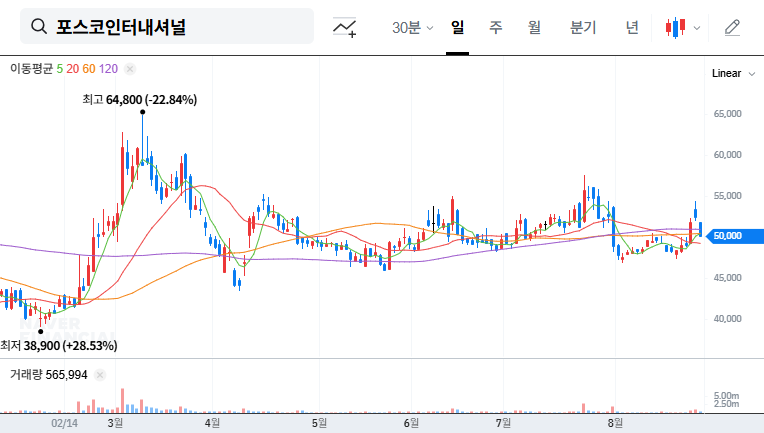
1. POSCO International IR: What was discussed?
POSCO International held an IR meeting in participation with the 2025 KB Korea Conference and Shinhan Premier Corporate Day, unveiling its ‘Real Value Story’ and current business progress. The key focus was on the company’s aggressive investment plans for future growth drivers, such as strengthening the LNG value chain, expanding overseas production bases for drive motor cores, and investing in palm oil refineries.
2. Why is it important?
This IR meeting went beyond simple information sharing; it provided investors with a crucial look into the company’s future growth potential. The presentation of solid performance in trading and energy businesses, along with concrete plans for future growth drivers, garnered significant investor attention.
3. What are the potential impacts?
- Positive Impacts: By clearly communicating its business vision and strategy through the IR meeting, POSCO International aims to enhance investor understanding and trust, potentially attracting new investments.
- Negative Impacts: Performance that falls short of market expectations or the revelation of unforeseen risks could lead to a decline in stock prices.
4. What should investors do?
Investors should closely monitor the business plans and performance indicators presented in the IR meeting, the influence of macroeconomic variables, the performance of future growth engine businesses, and ESG management and shareholder value enhancement activities. The current investment recommendation is ‘Hold,’ and this should be reviewed based on the IR meeting results and changes in market conditions.
What are POSCO International’s main businesses?
POSCO International focuses on trading (steel, chemicals, food, etc.) and energy (LNG, Myanmar gas fields, etc.).
What were the key takeaways from this IR meeting?
Plans were announced for strengthening the LNG value chain, expanding the drive motor core business, and investing in palm oil refineries to secure future growth engines.
What should investors be aware of when investing?
Investors should continuously monitor the company’s ability to respond to external environmental changes, such as the global economic slowdown, geopolitical risks, and exchange rate and interest rate volatility.
